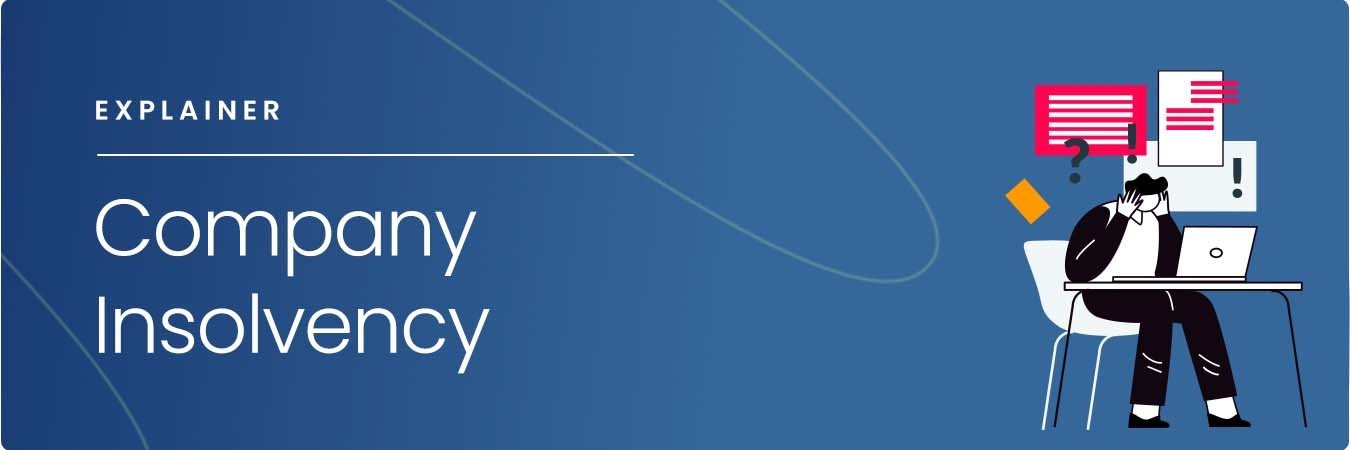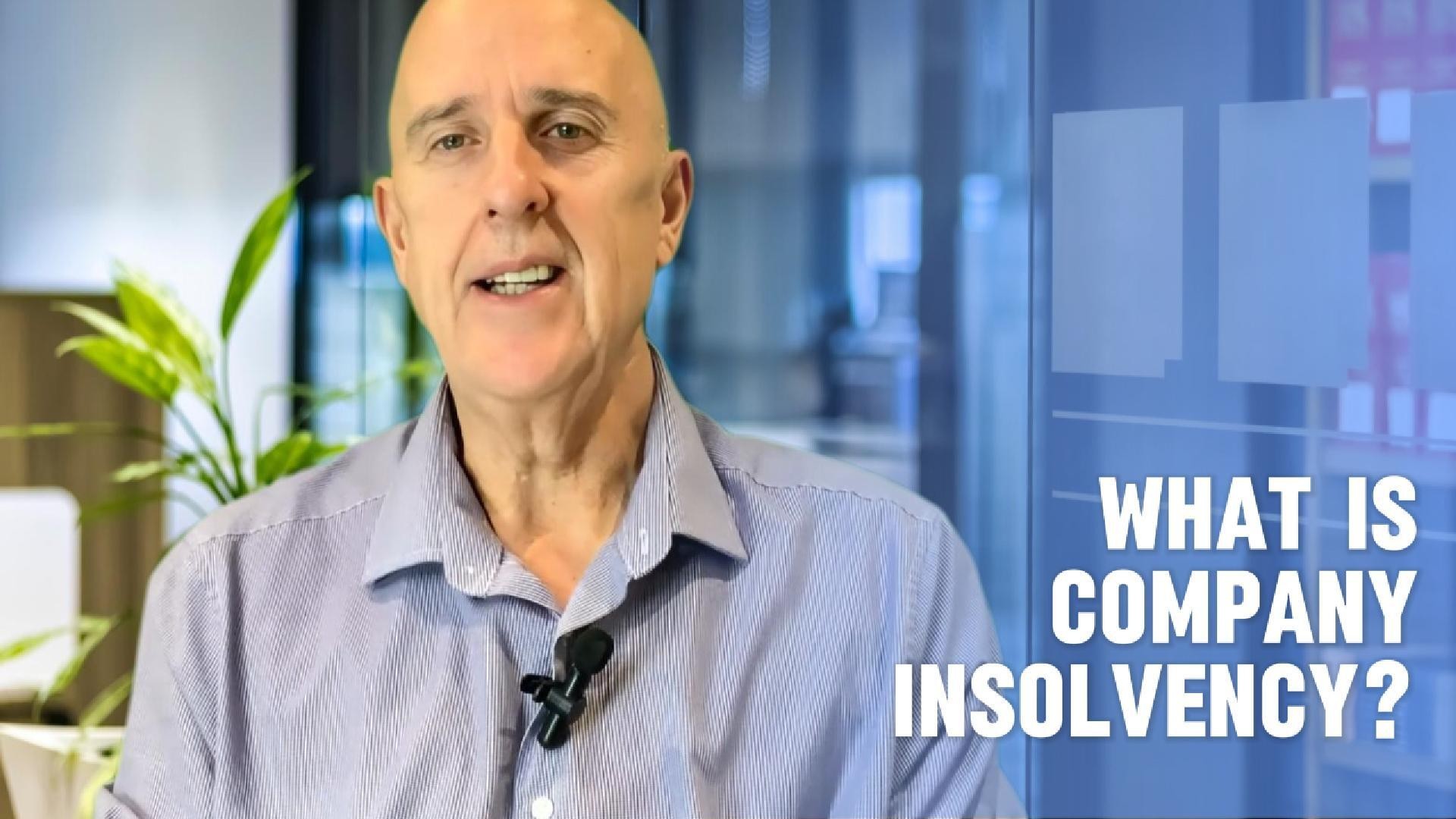
Understand your company's position and learn more about the options available
Require Immediate Support? Free Director Helpline: 0800 644 6080
Free Director Helpline: 0800 644 6080
Updated:
Company insolvency is when a company is unable to pay its outgoings as and when they fall due. Insolvency can also be defined as when a company's debts are greater than its assets. Company insolvency can quickly escalate, meaning time is very much of the essence if a director wants to turn around the company's financial position.
Insolvency is when a company is not able to pay its debts or other outgoings on time or in full. In many ways insolvency can be seen as the business version of bankruptcy. A company is classed as insolvent when its liabilities (or debts) outweigh its assets; or when it can no longer meet its outgoings as and when they fall due.
While insolvency is a dangerous position for a company to be in, it does not necessarily mean that the company is beyond rescue. There are a number of business rescue and recovery options which could help turn around the insolvent company’s fortunes and put it back on the road to financial success. Alternatively, it may be the case that the company's insolvent position has taken it beyond the point of rescue, and options to close the company need to be considered.

If you are concerned your company may be insolvent – or believe it is heading that way – the best thing you can do is to seek expert advice from a licensed insolvency practitioner at the earliest possible opportunity. They will be able to talk you through the various insolvency options and suggest the most appropriate solution for dealing with your company's debts. The sooner you seek help when it comes to an insolvent company, the more options will be open to you.

60 Second Test Find Your Nearest Office
If you are not certain whether your company is insolvent, there are two main insolvency tests you can take which can determine whether your company is currently classed as insolvent.
While these insolvency tests can determine whether your company is technically insolvent, there are other warning signs that you should be on the lookout for. It is likely that your company is insolvent, or is at risk of becoming so, if:
Free 60 Second Test
For Ltd Company Directors
What are you looking to do?
Choose below:
If you recognise any of the above conditions in your company's current situation then it could be in danger of becoming insolvent if it is not already. Once your company is insolvent you are at risk of having a winding up petition issued against the business which could lead to the courts forcing your company into liquidation.
Insolvency does not mean it is the end for your company, but you have to take swift and decisive action if you want to maximise the chances of turning the situation around. Without professional intervention, it is likely the situation will only get worse, making any turnaround effort even more difficult. Not only that, but you are also putting your own position at risk by continuing to trade a company you know to be insolvent.
“I completed the simple on line form, received the free guide by email immediately and then a call from Tom who was so very helpful. Highly recommend this service”
Pauline Whitehead
Once you know your company to be insolvent, you have certain legal duties and responsibilities as its director. One of these is to place the interest of creditors above those of yourself, and your fellow directors and shareholders. You should not engage in any activity which could worsen the position of your creditors or increase their losses any further. This means you should not add any additional debt to the business, nor should you strip the company of any of its assets.
In many cases, once you know your company is insolvent, you will need to cease trading immediately in order to protect your creditors. However, in some cases it may be determined that allowing operations to continue in the short-term may be of benefit to outstanding creditors. The only person who can make this decision is a licensed insolvency practitioner and it is vital you seek this expert advice before making any decision as to the future of your insolvent company.
Failure to meet this obligation could lead to accusations of wrongful or fraudulent trading, and if you're found guilty of such offences you could face penalties such as being ordered to personally contribute to company's debts and even risk the possibility of being disqualified from acting as the director of any limited company in the UK for a period of up to 15 years.
Is your company insolvent?
If your company is insolvent you have a number of legal responsibilities that you must adhere to. Taking steps to protect creditors from further losses by contacting a licensed insolvency practitioner can help ensure you adhere to these duties.
The team are available now - 0800 644 6080
Get a Quote Find Your Nearest Office
A licensed insolvency practitioner is a qualified professional who is authorised to provide advice and act in relation to limited companies and their directors. If your company is insolvent, seeking the advice of an insolvency practitioner should be your main priority.
They will be able to talk you through your options and determine the most appropriate next step for you and your company. By consulting an insolvency practitioner, not only are you maximising your chances of turning around your company, but you are demonstrating your desire to prioritise the interests of your creditors and to diligently adhere to your duties as the director of an insolvent company.
If you decide to implement a turnaround strategy, or decide that liquidation is the best option for your company, your appointed insolvency practitioner will act on your company’s behalf throughout the entire process. They will liaise with creditors on your behalf and will work to get any necessary payment plans or agreements in place. You will not be able to enter into a formal insolvency process without an insolvency practitioner so enlisting their help at an early stage is always advised.
Need to speak to someone?
If your company is struggling with unmanageable debts, squeezed cash flow, or an uncertain future, you are far from alone. We speak to company directors just like you every single day, and we are here to give you the help and advice you need.
Call our team today on 0800 644 6080
There are a variety of strategies which can be employed to help an insolvent company. The most appropriate option will depend on a number of factors including the level of distress a company is under, its future viability, and the desire on behalf of its directors to turn the situation around.
If your company is insolvent, you must act now. Ignoring the problems your company is facing will not make them go away; the situation will only get worse and the longer you let it continue, the more risk you are under to face allegations of wrongful trading.
Speak to the experts at Real Business Rescue today on 0800 644 6080 for immediate help and advice and to arrange a free no-obligation consultation with a licensed insolvency practitioner.
Still unsure whether liquidation is right for your company? Don't worry, the experts at Real Business Rescue are here to help. Our licensed insolvency practitioners will take the time to understand the problems your company is facing before recommending the best course of action going forward based on your own unique circumstances.

Complete the below to get in touch
For Ltd Company Directors
What are you looking to do?
Choose below:
We provide free confidential advice with absolutely no obligation.
Our expert and non-judgemental team are ready to assist directors and stakeholders today.

Understand your company's position and learn more about the options available

Find your nearest office - we have more than 100 across the UK. Remote Video Meetings are also available.

Free, confidential, and trusted advice for company directors across the UK.